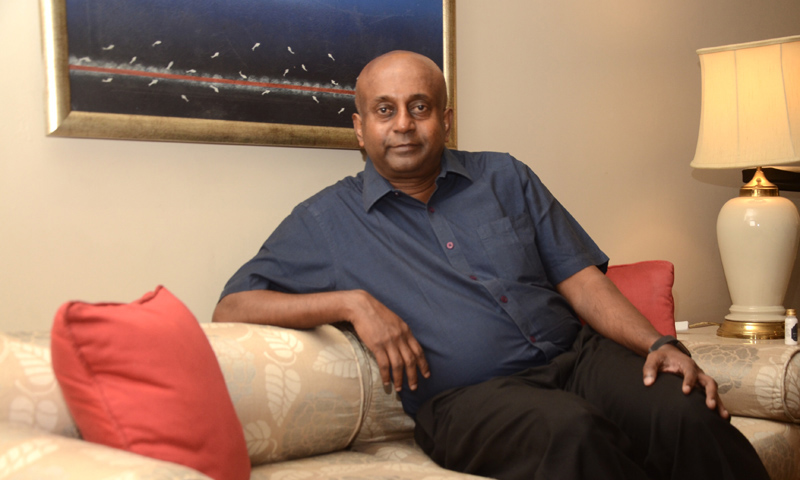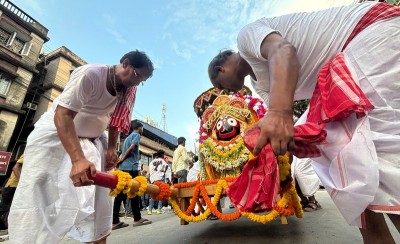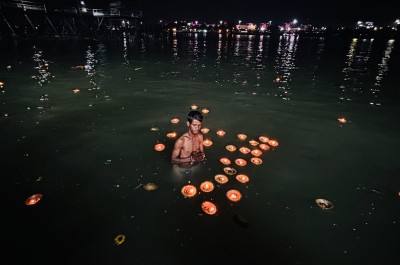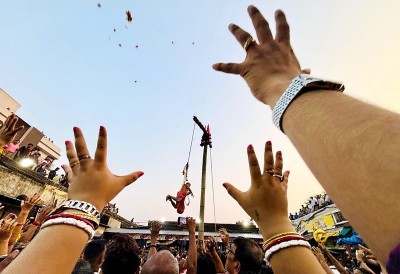 Indian Museum
Indian Museum
Second wave of COVID pandemic will make recovery for museums difficult: Vinod Daniel
The devastating economic fallout of COVID-19 does not spare museums too. As the world marks International Museums Day on May 18, IBNS correspondent Supriyo Hazra caught up with Vinod Daniel, Member, Board, International Council of Museums (ICOM), Paris. Excerpts:
There has been a drastic spike in COVID-19 cases in the past few weeks. How is it hitting the museum industry?
The first wave had a huge impact on museums globally. With job losses of about 15% and 10% of museums possibly closed permanently. Over 50% of staff from non-public museums had to deal with reduced working hours. Publicly funded museums though, with some job security for staff, had most of their operating budgets cut with a direct impact on public programs and visitor services.
Museums were slowly recovering after the first wave of Covid-19 with a reduced number of visitors coming back again. The second wave of Covid-19 will make this recovery even more difficult and we can expect more job losses and long-term museum closures globally. In India, the majority of museums are public funded, and I would imagine, they will struggle with very limited public funding for operational aspects (other than salary and maintenance).
Given there is a chance of a third wave in India and there seems to be no respite in other countries as well, how difficult is it for the museum sector to revive itself from the situation now?
Museums really have to go back to the drawing board and rediscover themselves. They have built a model of physical visitors, and often in many developing countries, a bureaucratic and change-averse strategy. We need to change this. It is going to be very difficult for many non-public museums. I would imagine more than a quarter of museums in this category will struggle to keep their doors open. The public funding for this sector will decrease and Museums need to find new mechanisms to generate the budget shortfall.
What are the best ways to revive the industry?
There are two aspects that will assist in Museum revival:
There needs to be a strong focus on growing the virtual presence of museums, how one makes this creative, exciting and can monetise from this will be important.
Public museums in countries such as India should explore a model of keeping their collections and related aspects, including conservation and documentation, as part of the relevant government department and leave the public face - programs, facilities (including visitor amenities), interpretation and other aspects - to an external private body. A small grant from the government can be provided annually and the access price fixed and left to the external party to make it financially viable and engaging for the visitors. I am sure there will be many leading companies (through their CSR budgets) interested in adopting and managing museums especially since some of the world’s best collections are in Museums.
In what ways can technology be used to tackle the current situation?
The best way would be to see how technology can assist in delivering on the core functions of a museum including education and virtual access. The audience reach would be manifold and global. Technology should also enable monetising through this access. A country such as India with its strength in Information Technology and Creative Industry can lead the world in this. The reach of Museums to schools can also be greatly increased especially to rural areas (through IT).
Museum sector in India needs to understand what the audience want: Vinod Daniel
How do you perceive the future of the industry now?
Every challenge presents an opportunity. This sector has been static for too long and the pandemic provides an opportunity to rethink what Museums are, how it should be managed, and how audiences should be reached.
Can the museum sector in India revive itself post the COVID pandemic?
I am very optimistic and if we get it right, India, by 2035, can be the world leader in museums. The key aspects to take into account would be:
a) India has collections which would be the envy of the world. Make it the government’s role in documenting, preserving and managing them.
b) Get the private sector more involved in the front face of museums, i.e. visitor services, public programs, shops. venues.
c) Use the Information Technology and Creative Industry (especially cinema) skills in India to develop a vibrant, engaging digital presence.
d) Look at museums to be a competitor to amusement parks and movies with an advantage that it can be both physical and virtual.
What message do you want to give to the museum community today?
Today being International Museums Day, as a board member of the global peak museum body ‘International Council of Museums’ which started this in 1977, I convey my gratitude to the Museum community for their dedication and hard work and staying focussed over the past 14 months in making sure our cultural past still stays safe and secure for future generations to appreciate and enjoy. The theme for this year ‘The Future of Museums: Recover and Reimagine’ is very fitting as museums adapt to the new normal of accepting a world with Covid-19 but still provide avenues for citizens of every country to celebrate, appreciate and learn.
Support Our Journalism
We cannot do without you.. your contribution supports unbiased journalism
IBNS is not driven by any ism- not wokeism, not racism, not skewed secularism, not hyper right-wing or left liberal ideals, nor by any hardline religious beliefs or hyper nationalism. We want to serve you good old objective news, as they are. We do not judge or preach. We let people decide for themselves. We only try to present factual and well-sourced news.







